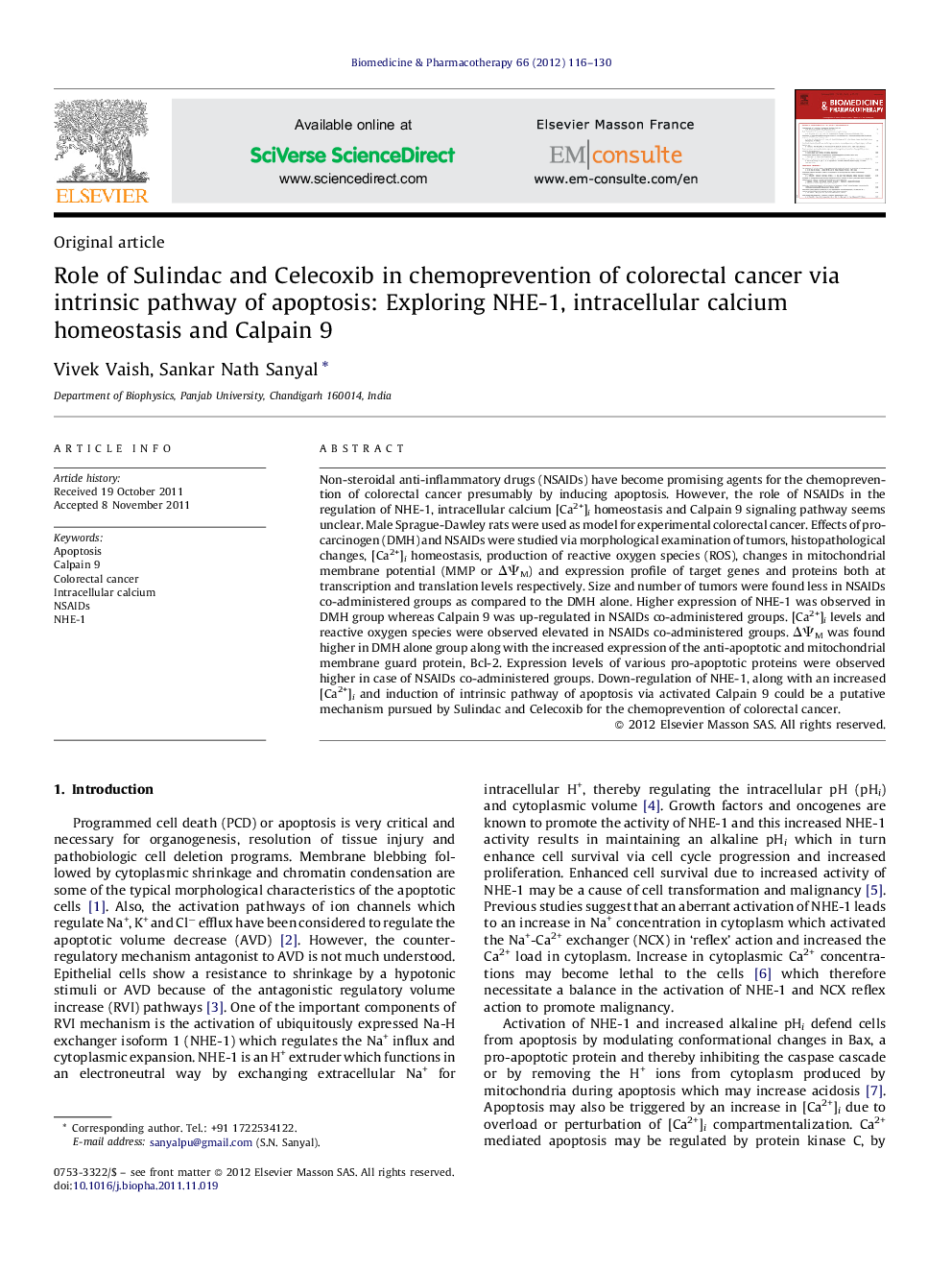| Article ID | Journal | Published Year | Pages | File Type |
|---|---|---|---|---|
| 2525182 | Biomedicine & Pharmacotherapy | 2012 | 15 Pages |
Non-steroidal anti-inflammatory drugs (NSAIDs) have become promising agents for the chemoprevention of colorectal cancer presumably by inducing apoptosis. However, the role of NSAIDs in the regulation of NHE-1, intracellular calcium [Ca2+]i homeostasis and Calpain 9 signaling pathway seems unclear. Male Sprague-Dawley rats were used as model for experimental colorectal cancer. Effects of pro-carcinogen (DMH) and NSAIDs were studied via morphological examination of tumors, histopathological changes, [Ca2+]i homeostasis, production of reactive oxygen species (ROS), changes in mitochondrial membrane potential (MMP or ΔΨM) and expression profile of target genes and proteins both at transcription and translation levels respectively. Size and number of tumors were found less in NSAIDs co-administered groups as compared to the DMH alone. Higher expression of NHE-1 was observed in DMH group whereas Calpain 9 was up-regulated in NSAIDs co-administered groups. [Ca2+]i levels and reactive oxygen species were observed elevated in NSAIDs co-administered groups. ΔΨM was found higher in DMH alone group along with the increased expression of the anti-apoptotic and mitochondrial membrane guard protein, Bcl-2. Expression levels of various pro-apoptotic proteins were observed higher in case of NSAIDs co-administered groups. Down-regulation of NHE-1, along with an increased [Ca2+]i and induction of intrinsic pathway of apoptosis via activated Calpain 9 could be a putative mechanism pursued by Sulindac and Celecoxib for the chemoprevention of colorectal cancer.
